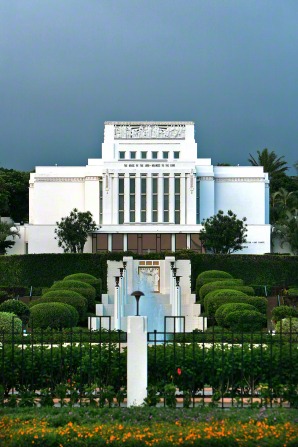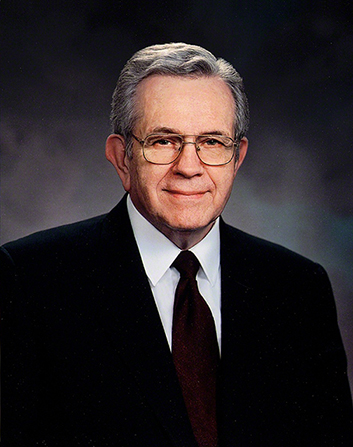Word of Wisdom- Story of Creed Haymond - The
story was taken from the October 1928 Improvement Era Word of Wisdom- Elder L. Tom Perry “Run
and Not Be Weary”

I will ever be grateful for
the teachings of righteous parents who instilled in us the lessons taught to us
in the Word of Wisdom. In addition to their teachings, we were taught carefully
by Primary, Sunday School, and priesthood teachers.
I particularly remember a Primary teacher
reading a story to us from the Improvement Era. I had the Historical
Department find it for me, and I found it was worth repeating. The story was
taken from the October 1928 Improvement Era and is about Creed
Haymond, a young Mormon who applied and was accepted at the University of
Pennsylvania. He was an athlete known for his speed, and because of
the way he acted and participated, he was chosen to be the captain of the track
team.
The annual meet of the Intercollegiate
Association of Amateur Athletes of America was held at Harvard Stadium at the
end of May of 1919. To Cambridge came the greatest college athletes—1,700 in
all. In the tryouts, Penn had qualified 17 men. Cornell, their most feared
rival that year, had qualified only 10. The Penn team was in position to be
crowned the champions. The scores were made on the first five places—five for
first, four for second, three for third, two for fourth, and one for fifth.
Naturally, the team that qualified the most men had the greatest opportunity to
win the meet.
The Penn coach was in high spirits the night
before the meet. He made the rounds of his team members before he retired. He
came into Creed’s room and said, “Creed, if we do our best tomorrow, we will
run away with it.”
The coach hesitated. “Creed, I’m having the
boys take a little sherry wine tonight. I want you to have some, just a little
of course.”
“I won’t do it, Coach.”
“But, Creed, I’m not going to get you drunk.
I know what you ‘Mormons’ believe. I’m giving you this as a tonic, just to put
you all on your metal.”
“It won’t do me any good, Coach; I can’t
take it.”
The coach replied, “Remember, Creed, you’re the
captain of the team and our best point winner. Fourteen thousand students are
looking to you personally to win this meet. If you fail us we’ll lose. I ought
to know what is good for you.”
Creed knew that other coaches felt that a
little wine was useful when men have trained muscles and nerves almost to the
snapping point. He knew also that what the coach was asking him to do was
against all that he had been taught from his early childhood. He looked his
coach in the eye and said, “I won’t take it.”
The coach replied, “You’re a funny fellow,
Creed. You won’t take tea at the training table. You have ideas of your own.
Well, I’m going to let you do as you please.”
The coach then left the captain of the team
in a state of extreme anxiety. Suppose he made a poor showing tomorrow. What
could he say to his coach? He was going up against the fastest men in the
world. Nothing less than his best would do. His stubbornness might lose the
meet for Penn. His teammates were told what to do, and they had responded. They
believed in their coach. What right did he have to disobey? There was only one
reason. He had been taught all his life to obey the Word of Wisdom.
It was a critical hour in this young man’s
life. With all the spiritual forces of his nature pressing in on him, he knelt
down and earnestly asked the Lord to give him a testimony as to the source of
this revelation that he had believed in and obeyed. Then he went to his bed and
slept in sound slumber.
The next morning the coach came into his
room and asked, “How are you feeling, Creed?”
“Fine,” the captain answered cheerfully.
“All of the other fellows are ill. I don’t
know what’s the matter with them,” the coach said seriously.
“Maybe it’s the tonic you gave them, Coach.”
“Maybe so,” answered the coach.
Two o’clock found 20,000 spectators in their
seats waiting for the meet to begin. As the events got under way, it was plain
that something was wrong with the wonderful Penn team. Event after event, the
Penn team performed well below what was expected of them. Some members were
even too ill to participate.
The 100- and 220-yard dash were Creed’s
races. The Penn team desperately needed him to win for them. He was up against
the five fastest men in American colleges. As the men took their marks for the
100-yard dash and the pistol was shot, every man sprang forward into the air
and touched the earth at a run—that is, all except one—Creed Haymond. The
runner using the second lane in the trials—the lane that Creed was running in
at this particular event—had kicked a hole for his toe an inch or two behind
the spot where Haymond had just chosen for his. They didn’t use starting blocks
in those days. With the tremendous thrust that Creed gave, the narrow wedge of
earth broke through, and he came down on his knee behind the line.
He got up and tried to make up for the poor
start. At 60 yards, he was last in the race. Then he seemed to fly past the
fifth man, then the fourth, then the third, then the second. Close to the tape,
heart bursting with strain, he swept into that climax with whirlwind swiftness
and ran past the final man to victory.
Through some mistake in arrangements, the
semifinals for the 220 were not completed until almost the close of the meet.
With the same bad breaks that had followed the Penn team all day, Creed Haymond
had been placed in the last qualifying heat for the 220-yard dash. Then, five
minutes after winning it, he was called upon to start the final 220, the last
event of the day. One of the other men who had run in an earlier heat rushed up
to him. “Tell the starter you demand a rest before running again. You’re
entitled to it under the rules. I’ve hardly caught my breath yet and I ran in
the heat before yours.”
Creed went panting to the starter and begged
for more time. The official said he would give him 10 minutes. But the crowd
was clamoring for the final race to begin. Regretfully he called the men to
their marks. Under ordinary conditions Creed would not have feared this race.
He was probably the fastest man in the world at that distance, but yet he had
already run three races that afternoon—one the heart-stopping 100-yard dash.
The starter ordered the breathless men to
their marks, raised his pistol, and with a puff of smoke the race began. This
time the Penn captain literally shot from his marks. Soon Creed emerged from
the crowd and took the lead. He sprinted all the way up the field, and with a
burst of speed and eight yards ahead of the nearest man, he broke the tape,
winning the second race—the 220-yard dash.
Penn had lost the meet, but their captain
had astounded the fans with his excellent runs.
At the end of that strange day, as Creed
Haymond was going to bed, there suddenly came to his memory his question of the
night before regarding the divinity of the Word of Wisdom. The procession of that
peculiar series of events then passed before his mind—his teammates had taken
wine and had failed; his abstinence had brought victories that even amazed
himself. The sweet simple assurance of the Spirit came to him: the Word of
Wisdom is of God. (Adapted from Joseph J. Cannon, “Speed and the Spirit,” Improvement
Era, Oct. 1928, 1001–7.)







